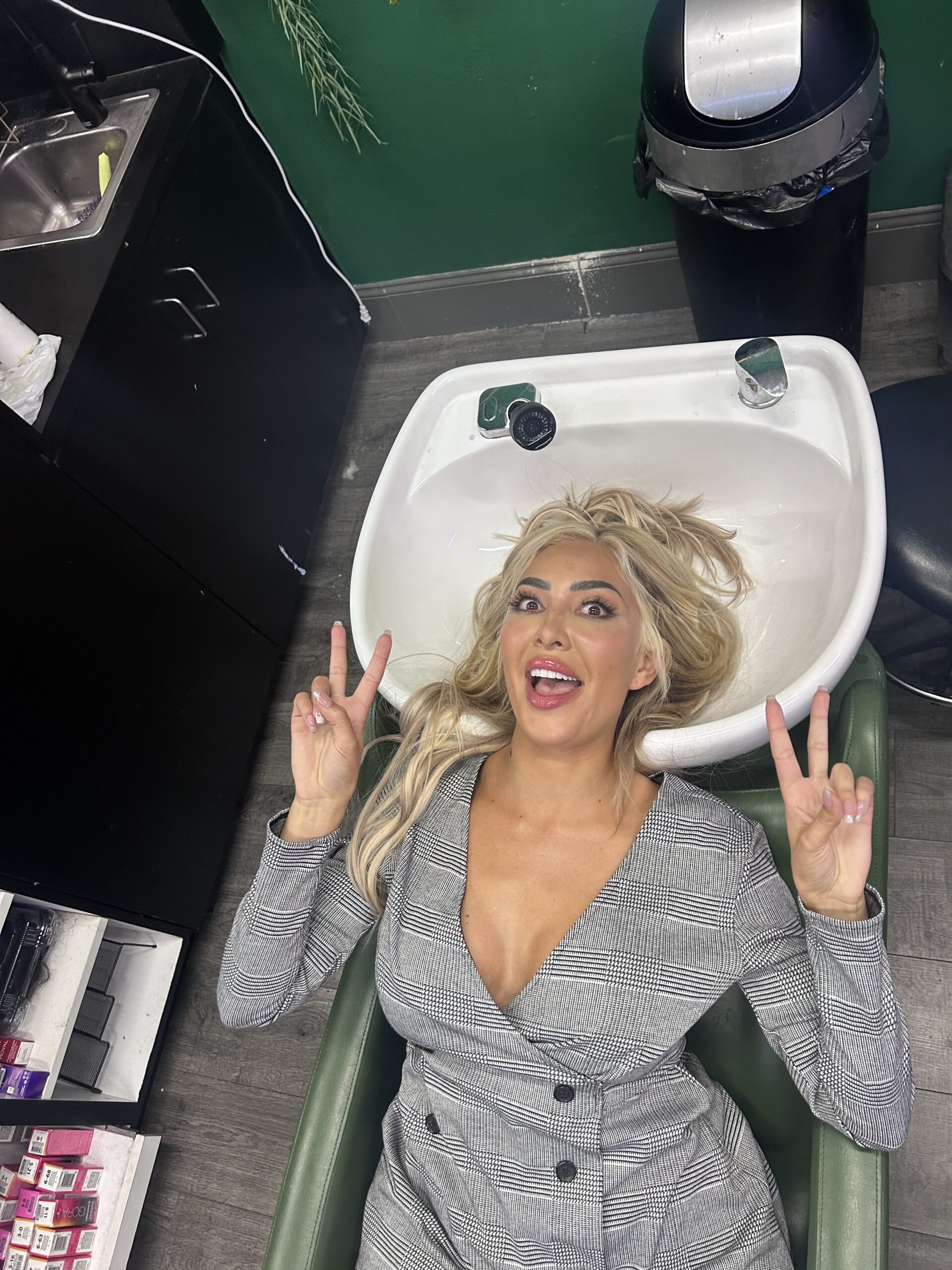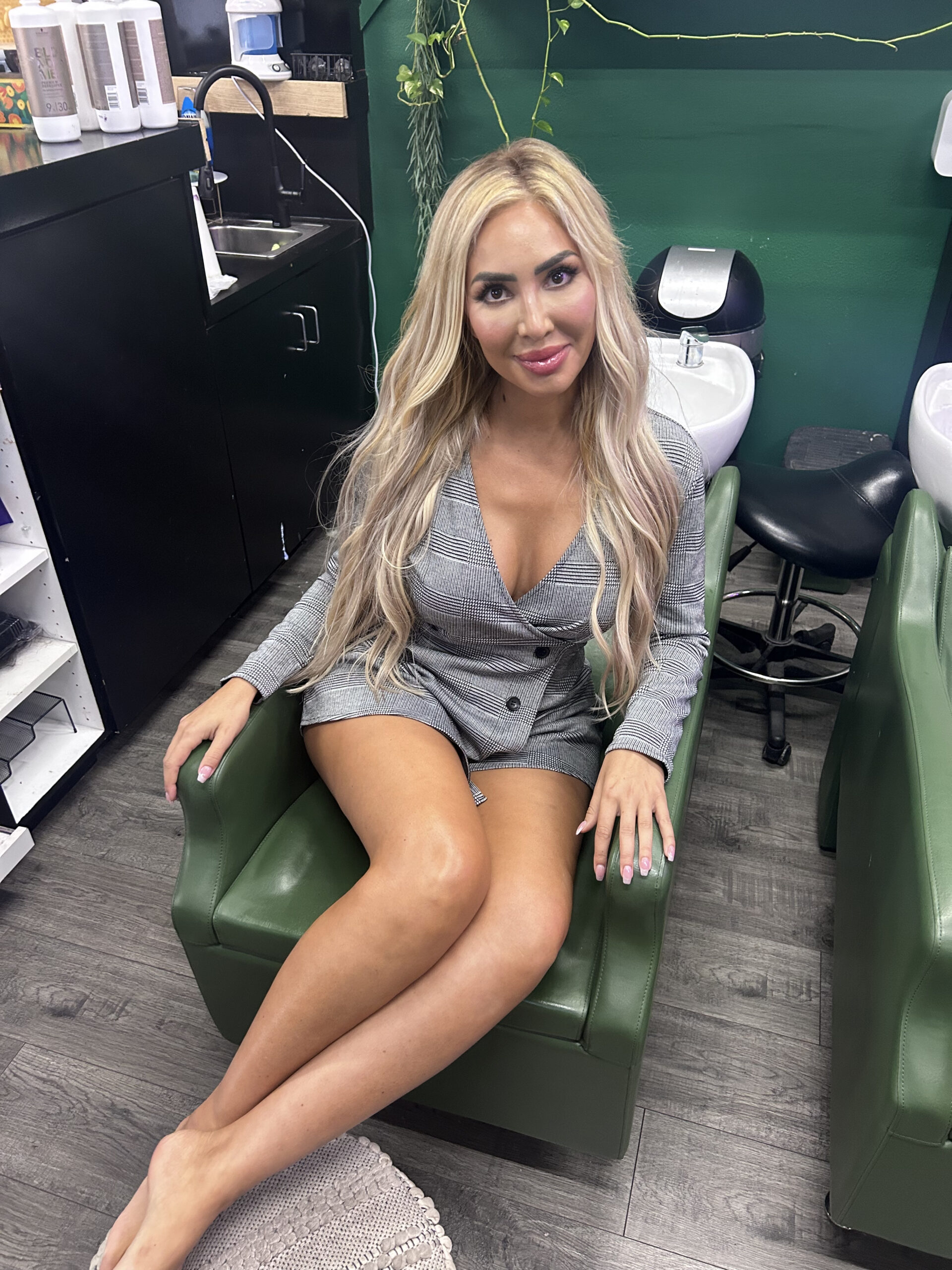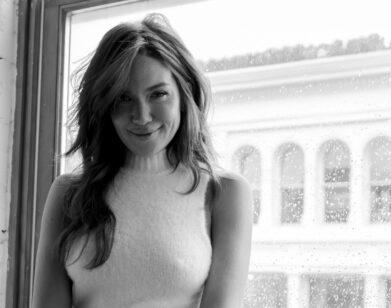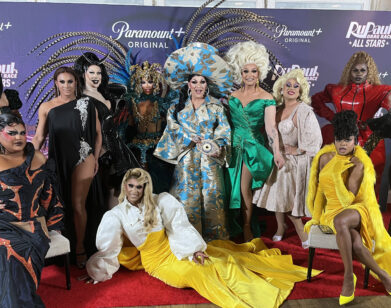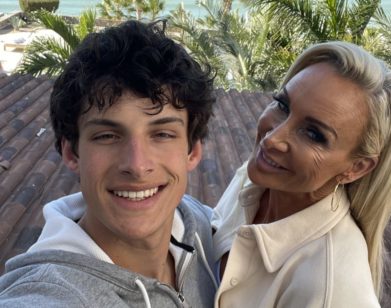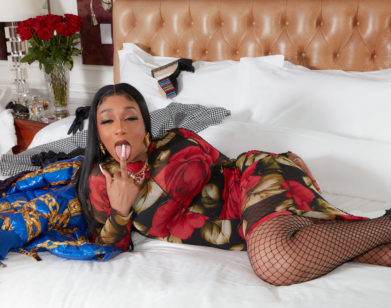ALL GROWN UP
“My Inner Child Is Healed”: How Farrah Abraham Survived the Reality TV Machine
Pick a thing, and Farrah Abraham has probably done it: reality television, porn, a cooking show, and a cult classic album, to name only a few. She’s been called both an outsider artist and a “famewhore who sucks at lying” in a Vice article and compared, by The Atlantic, to David Lynch in another. A writer at Jezebel says her music “really should have been aborted.” Suffice it to say, Abraham remains divisive and singularly compelling.
“I never played myself,” she told me. “I just am myself.” That much has been clear from the jump, when Abraham starred on 16 and Pregnant in 2009 and gave birth to her daughter, Sophia, on national television. Her haters like to dismiss her as the embodiment of MTV’s last gasp of relevancy, or just plain 2010s trash. But back when Disney stars still donned purity rings, Abraham advocated for safe sex, and her 2012 album My Teenage Dream Ended basically invented hyperpop. She also publicly navigated domestic abuse, grief, and mental health issues back when “trauma” wasn’t a national buzzword.
I remember being utterly transfixed when I watched Abraham’s episode of 16 and Pregnant on the floor of my friend’s bedroom. And when I discovered My Teenage Dream Ended years later, it was more of the same: Abraham’s voice gripped me and never let go. So it was something of a full circle moment when, 15 years after first gracing our TV screens, Abraham joined me in Los Angeles to dive deep into faith, the ethics of reality tv, and her own daughter’s coming of age.
———
FARRAH ABRAHAM: Oh my gosh, we got a girl from Austin. Let’s do this.
REBECCA LOFTIN: Let’s do it. To start out, how are you?
ABRAHAM: I would say I’m having one of the best Farrah Fridays of my life. So it’s going great.
LOFTIN: What’s a Farrah Friday?
ABRAHAM: Every Friday is a Farrah Friday now, and I think everyone should pick a day where they can be like, “This is going to be an awesome part of my week.” So I’ve done that for Fridays, for Farrah, for me.
LOFTIN: For how long?
ABRAHAM: I’ve been doing this probably for 10 or 11 years.
LOFTIN: So you’ve had, at this point, hundreds of Farrah Fridays?
ABRAHAM: Yes, and I feel like it gives me a new mark every week.
LOFTIN: Perfect. So you have been on several reality shows from the Teen Mom franchise to Marriage Bootcamp to Celebrity Big Brother and so many more. Do you have a favorite?
ABRAHAM: Wow. I think every show I’ve chosen to do is my favorite. The shows that I wanted to be a part of were all socially impactful; they were helping people with their mental health and well-being and their journey, and that’s what I love to be a part of in television. But I would say my favorite show, hands down, is the Teen Mom franchise because I’m having these full circle moments this year of seeing my daughter turn 16, and that’s when I started television.
LOFTIN: This actually transitions perfectly into my next question. How was your experience different on 16 and Pregnant than on your later shows?
ABRAHAM: Well, 16 and Pregnant was so special because I had no ideas about the entertainment business. I just wanted to do the best thing for my life and my family. I have friends on every kind of other docu-reality-contest-y show, and most of those adults are playing characters, not even themselves. And I think that’s why a lot of people in reality TV have an identity crisis. I was always like, “I’m fighting to be my next best self, to figure out who I am and be the best person, not play a character or fill a role.”
LOFTIN: So you felt like you were always playing yourself on reality TV?
ABRAHAM: I never played myself. I just am myself. I’m just living me. And later on in that journey of 16 and Pregnant, which turned into Teen Mom, there was a wrongful firing and there was, “Farrah can’t be herself and show herself anymore.” And that’s when I was like, “I don’t need to be a part of this anymore.”
LOFTIN: Yeah. You mentioned that a lot of people get their identities mixed up. In your opinion, how real is reality TV?
ABRAHAM: Reality TV needs to be better. I don’t think it’s doing justice to realities. You can make reality television that literally doesn’t change or help anyone. That’s the kind of reality television that we’ve all been growing with, but there is a new generation of people who are pushing to treat talent like equals and cares about pay, cares about inclusion, about good principles and inclusivity. Producer credits, writer credits—it’s their life, why aren’t you giving them that? It’s kind of like an unequal, illegal machine. What I’m ready to do in starting my own production is say, “I respect that those are not my shows that I started. But I respect myself as a writer, a creator, someone who’s going to get your stuff greenlit for you, which I’ve done multiple times for years for everybody else.”
LOFTIN: So you feel like you’re trying to get into a space where it’s realer and more equitable?
ABRAHAM: Yeah, because that’s what everyone wants. They want actual, authentic television from behind the scenes to the front of the screen. They don’t want someone like the girls on Selling Sunset, showing up, playing a role, and then everyone’s online being like, “They’re not even realtors.” You have a bunch of celebrities who do fake shows calling out other fake people for their characters all day long. I’m just not into it anymore. When I show up to do a job, when I show up to share my life and my likeness, I’m elevating my personal self, or that program. I’ve gotten people countless reunions and specials and it’s because I’m elevating that project. That’s what viewers deserve.
LOFTIN: I completely agree. So you recently purchased a Cybertruck for your daughter Sophia. It’s her first car. Did she pick it out?
ABRAHAM: Yeah, Sophia picked out the Cybertruck. I mean, it’s a far cry from where I started at 15 where everyone saw my mom hit me in a car because I was interested in a Ford Focus or something. I don’t ever want to repeat that trauma that I had to share with the world. So we looked at the electric Rolls Royces that came out. I mean, in 2025, all these cars that you get, it’s like they’re saving these kids’ money on gas. But if I’m rewriting the script on parenting, I’m going to give my daughter an amazing foundation. Because as we saw on television, I went through a lot of dysfunction and I didn’t want to recreate that. My daughter deserves a Cybertruck.
LOFTIN: Hell yeah. What is your parenting philosophy?
ABRAHAM: That she is seen, supported, and heard. I learned so much from my daughter. I’m not really a part of a toxic femininity that is egotistical, prideful, thinking they’re above their children. I pride myself on gratitude, appreciation, and just looking at my child with equality and inclusion because that’s what my child needs.
LOFTIN: That’s great. I feel like we have to talk about My Teenage Dream Ended.
ABRAHAM: Yeah.
LOFTIN: It’s still one of my favorite albums of all time. It’s such a great encapsulation of teenage angst and rage, and such an honest look at all the feelings someone can have while going through a really chaotic period. How does that piece of work sit with you now?
ABRAHAM: I love that piece of work. And actually, my ex-boyfriend, he would always bring up my songs because he was going through a hard time. I think so much of our teenage years play into our older adult self if we haven’t healed that. I always loved my music. I loved my book. And when I came out with an album that went with my book, the executives freaked out. They did not like that. And my daughter, she shows me a lot of different musicians that aren’t mainstream who are coming up that are writing songs like that. I want to dance through the pain, and I need music to get through it. I didn’t really know how to express myself or my words. We’re talking now after I’ve had deep therapy. I finally got resolution in a trauma center at 30, and that was really one of the best things I could have done because I wasn’t getting the therapy I needed [when I was younger].
LOFTIN: Do you think you’ll ever return to music?
ABRAHAM: I would love to. I mean, I really want my daughter to do a song for her teens. And I know this sounds crazy, but I wrote music about my teens, and I just feel like everyone deserves that opportunity. I hope she takes me up on that offer whenever she’s ready.
LOFTIN: That’s awesome. So you were learning how to be a mother and a single parent in a very public way from a very young age. How has your relationship to motherhood changed over the years?
ABRAHAM: I used to think that I needed everyone’s help to be the greatest mom. And I used to think if I couldn’t provide everything that I’ve been given growing up, then I would fail as a mother. And now my child doesn’t want anything that I had growing up. That’s not her version of successful motherhood. She doesn’t want all the toxic dysfunctional family that’s around. And that is really what a mother-daughter relationship is about, getting your child to be emotionally regulated. And I think that’s what the 12-step principles are; you stop having toxic relationships, you just have flourishing relationships.
LOFTIN: If you could go back and talk to your teenage self, what would you say to her?
ABRAHAM: Well, my inner child is healed. And I get to basically talk to my younger self now, because it’s Sophia. I think the most important thing I’ve said to my daughter as she’s turning into a young woman is that she does not need to blame, shame, or reject herself if the world is not ready to help women prevent unplanned pregnancies. I mean, maybe the reason I don’t have a second child to this day was because I always heard, “You failed. It was on you.” But it’s really not about that when it comes to birth control and prevention. My daughter almost saw me die from birth control. I had to have emergency removals, I lost my brain functionality at a time because of birth control. I believe in vasectomies. And now, almost 16 years later, we’re going full circle to the show, you can just walk into a CVS and go get birth control off the rack. And you can now get your plan B if you don’t believe in birth control.
LOFTIN: I mean, you really are coming full circle with your daughter turning 16, and you were 16 at the time. That must be a really surreal experience. Previously, you worked in traditional porn and had a residency at the Palazio Gentlemen’s Club in Austin. You also have an OnlyFans. How is it being an independent creator?
ABRAHAM: Well, I have a team, I have management, I have agents, and I take adult entertainment very seriously. It’s like, I prayed to god when I was dealing with this whole adult entertainment thing. I’m taking an unfortunate situation and trying to turn that into a positive, because I didn’t like being exploited. I didn’t like having a female manager. There are a lot of Ghislaine Maxwell’s out there. So I know we can look at it in a sensationalized way like, “Oh my god, adult entertainment money gives you so much.” Well, there’s also a lot of other adult entertainers who are broke, who have their teeth falling out, who are committing suicide. I’ve seen it. And it makes me really, really sad. So I guess sexual assault victims, like adult entertainers, they needed an advocate. And if that’s a teen mom, I’ve shown them all that.
LOFTIN: Yeah. So you think people are sold on an idea of what adult entertainment will be, and then they’re taken advantage of?
ABRAHAM: I don’t know if I was ever sold on any idea of adult entertainment. I made it my own, because this is me and no one’s going to take any more [of my] money, exploit me, hurt me, damage me.
LOFTIN: I have a bunch of rapid fire questions.
ABRAHAM: All right. Let’s see how fast I can be.
LOFTIN: A lot of people discovered your music from a Pitchfork review of Charli XCX’s Pop 2. Any thoughts on Brat?
ABRAHAM: Brat? I don’t know. Charli XCX’s music is really cool. I know she’s coming out with more. My daughter just had me listen to one of hers. I think it’s awesome that I’m being compared to Charli XCX at this time. I’m happy that it resonated. I guess her music is kind of like mine, but I didn’t know about her back in the day when I was doing my music.
LOFTIN: What do you do when you’re bored?
ABRAHAM: I don’t think I’m ever bored. But when I am, there’s a problem. I keep myself busy with my master’s degree in marketing, and then I look forward to my law degree. I’m always getting a certification. I’m always doing a degree or I’m always screenwriting.
LOFTIN: Any favorite TV shows?
ABRAHAM: I’m going to brag because I was also on a TV show called Couples Therapy, but I watch the new and invigorated Couples Therapy that’s on Showtime.
LOFTIN: I love that one. It’s really good.
ABRAHAM: Who doesn’t like to watch dysfunctional couples try to get to a place of secure attachment?
LOFTIN: Yeah. Do you believe in god?
ABRAHAM: I believe in god. I believe in spirituality. I would say my spirituality is number one and religion is second, because basically all religions are based off of spirituality and those principles.
LOFTIN: What do you want to be remembered for?
ABRAHAM: I think the best thing to be remembered for is not wearing a mask. Show your reality. Be authentic. You do not need to hide who you are. You don’t need to build a persona. I say in one of my songs, “Being yourself is making you famous.” Sorry to do another music shout-out. But a lot of people like to put all these identities on me. “You’re a porn star, you’re just a teen mom, you’re just an actress, or you’re just this, you’re just that.” You can be whatever you want and you don’t have to wear any of the masks that people put on you.

